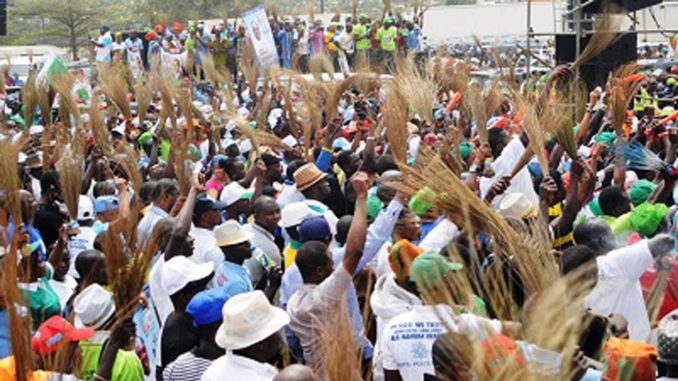
The administrative capacity of Mallam El-Rufai has never been in doubt. In Kano, Governor Abdullahi Ganduje has a Ph.D in Public Administration, his erstwhile Deputy Hafiz Abubakar is a professor of Biochemistry, while his new deputy, Hon. Nasir Gawuna is a Ph.D holder too. Sokoto and Gombe states are being governed by a successful lawyer and a chartered accountant respectively. We, therefore, as a region cannot afford to drop from the present level of governance in the region but rather aspire to take some notches up.
We must constantly remind ourselves of the pacesetter status of the region in public governance and the need to sustain this enviable position by continually raising the bar for anyone seeking public office. The truth is, our development standing is being challenged on many fronts by other regions of the country. Our claim to first in education, health, food security, financial self-sufficiency seems not to be the reality again if the available data is anything to go by. Our leaders must be ready to apply every sinew of fibre of their intellect to ensure that where the region has slipped or lagged we quickly reclaim our pride of place. And this has to start with the quality of people that will be put in office to administer the states from May 29, 2019. Self-interest and unhealthy sentiment must be subdued when leaders are being elected. In recruitment for leadership offices, great consideration must be given to capacity, competence and character.
The region’s electorate must be reminded of how the incredible leadership qualities of our past leaders like Chief Obafemi Awolowo and his successor in office, Chief SLA Akintola, made the region a go-to-place in the days of yore. This should remain the reference point for subsequent leadership recruitment in the region. These two leaders would probably have not achieved their level of success without of good education, exposure and native intelligence that they were made of and which also enabled them to choose very competent aides together with whom they drove development in the region.
We must also know that the region does not reserve the right to remain number one in any sector. If we are to remain at the top, we must prove ourselves worthy by employing the services of quality minds in all sectors of governance.
Another issue of note as we approach another transition is the need for the incoming chief executives to sustain the existing cooperation and collaboration among the six states. As mentioned earlier, the inherent benefits in regional cooperation and development integration cannot be gainsaid.
In the five years of existence of Development Agenda for Western Nigeria (DAWN) Commission, strong support of the governors has helped it travel a bit far in its mandate. While serving as the secretariat of the Western Region Governors’ Forum, DAWN facilitates periodic meeting of the governors. One of the flagships policy issues that have headlined the forum is the Rice Accelerated Programme for Integrated Development (Western RAPID).
In the project, Oyo, Osun, Ondo and Ekiti states will make land available for rice farming while Lagos will provide funds. Lagos will also serve as the off-takers of the produce for processing at her rice mill. Beside the objective of making the region rice sufficient, it will also generate direct and indirect job opportunity for the people.
I, therefore, enjoin us to give consideration to all the above as we approach another transition in 2019.
Concluded.
Oyeleye is the director-general, DAWN Commission.
END

Be the first to comment